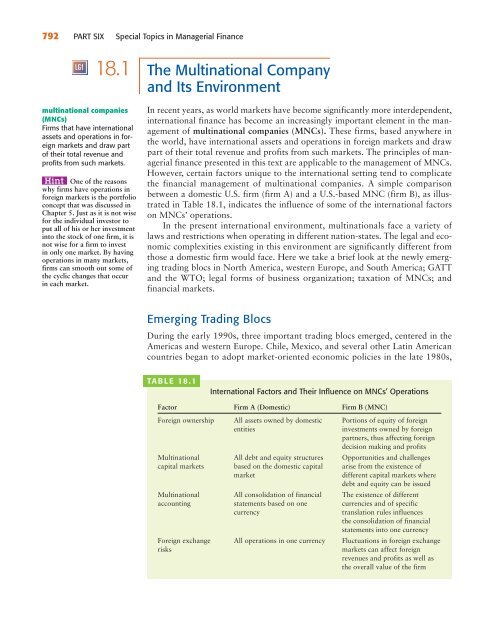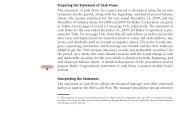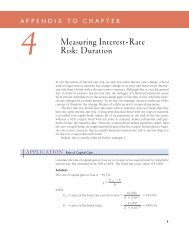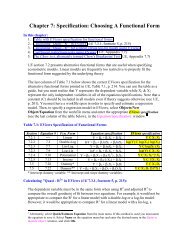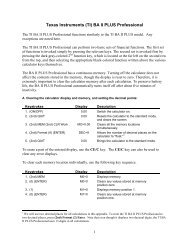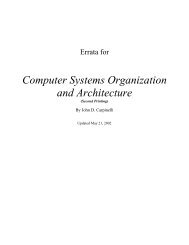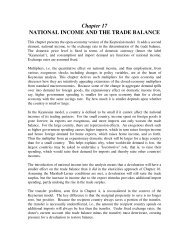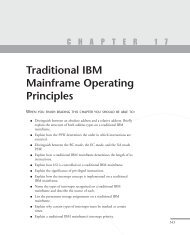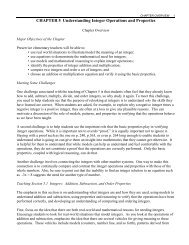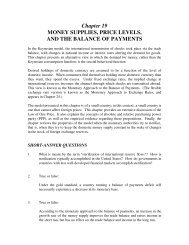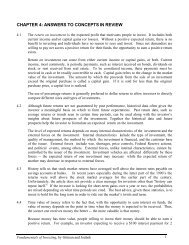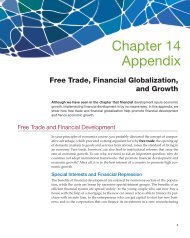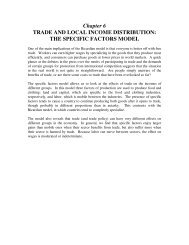Chapter 18 International Managerial Finance
Chapter 18 International Managerial Finance
Chapter 18 International Managerial Finance
Create successful ePaper yourself
Turn your PDF publications into a flip-book with our unique Google optimized e-Paper software.
792 PART SIX Special Topics in <strong>Managerial</strong> <strong>Finance</strong><br />
LG1<br />
multinational companies<br />
(MNCs)<br />
Firms that have international<br />
assets and operations in foreign<br />
markets and draw part<br />
of their total revenue and<br />
profits from such markets.<br />
Hint One of the reasons<br />
why firms have operations in<br />
foreign markets is the portfolio<br />
concept that was discussed in<br />
<strong>Chapter</strong> 5. Just as it is not wise<br />
for the individual investor to<br />
put all of his or her investment<br />
into the stock of one firm, it is<br />
not wise for a firm to invest<br />
in only one market. By having<br />
operations in many markets,<br />
firms can smooth out some of<br />
the cyclic changes that occur<br />
in each market.<br />
<strong>18</strong>.1 The Multinational Company<br />
and Its Environment<br />
In recent years, as world markets have become significantly more interdependent,<br />
international finance has become an increasingly important element in the management<br />
of multinational companies (MNCs). These firms, based anywhere in<br />
the world, have international assets and operations in foreign markets and draw<br />
part of their total revenue and profits from such markets. The principles of managerial<br />
finance presented in this text are applicable to the management of MNCs.<br />
However, certain factors unique to the international setting tend to complicate<br />
the financial management of multinational companies. A simple comparison<br />
between a domestic U.S. firm (firm A) and a U.S.-based MNC (firm B), as illustrated<br />
in Table <strong>18</strong>.1, indicates the influence of some of the international factors<br />
on MNCs’ operations.<br />
In the present international environment, multinationals face a variety of<br />
laws and restrictions when operating in different nation-states. The legal and economic<br />
complexities existing in this environment are significantly different from<br />
those a domestic firm would face. Here we take a brief look at the newly emerging<br />
trading blocs in North America, western Europe, and South America; GATT<br />
and the WTO; legal forms of business organization; taxation of MNCs; and<br />
financial markets.<br />
Emerging Trading Blocs<br />
During the early 1990s, three important trading blocs emerged, centered in the<br />
Americas and western Europe. Chile, Mexico, and several other Latin American<br />
countries began to adopt market-oriented economic policies in the late 1980s,<br />
TABLE <strong>18</strong>.1<br />
<strong>International</strong> Factors and Their Influence on MNCs’ Operations<br />
Factor Firm A (Domestic) Firm B (MNC)<br />
Foreign ownership All assets owned by domestic Portions of equity of foreign<br />
entities investments owned by foreign<br />
partners, thus affecting foreign<br />
decision making and profits<br />
Multinational All debt and equity structures Opportunities and challenges<br />
capital markets based on the domestic capital arise from the existence of<br />
market different capital markets where<br />
debt and equity can be issued<br />
Multinational All consolidation of financial The existence of different<br />
accounting statements based on one currencies and of specific<br />
currency translation rules influences<br />
the consolidation of financial<br />
statements into one currency<br />
Foreign exchange All operations in one currency Fluctuations in foreign exchange<br />
risks markets can affect foreign<br />
revenues and profits as well as<br />
the overall value of the firm


